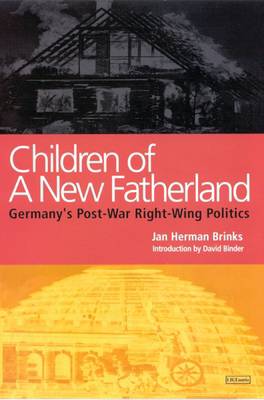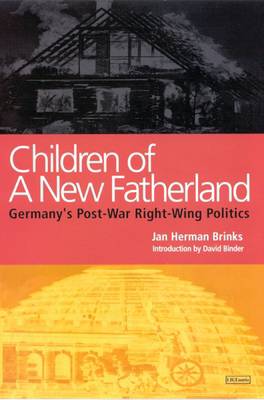
- Retrait gratuit dans votre magasin Club
- 7.000.000 titres dans notre catalogue
- Payer en toute sécurité
- Toujours un magasin près de chez vous
- Retrait gratuit dans votre magasin Club
- 7.000.0000 titres dans notre catalogue
- Payer en toute sécurité
- Toujours un magasin près de chez vous
Children of a New Fatherland
Germany's Post-War Right Wing Politics
Jan Herman BrinksDescription
This is a study of the growth of the right wing in a reunited Germany. Since the end of the Cold War, an explosion of xenophobia and attacks on foreigners - some of them asylum-seekers - has attracted world-wide media attention. Coming after the seemingly miraculous celebration of freedom accompanying the fall of the Berlin Wall and the country's reunification, these events have caused acute anxiety within Germany itself. These phenomena are not exclusive to Germany, but their undertones of Nazism have prompted the question: how could this happen in a country that had so firmly repudiated its past and rightly prided itself on its anti-fascism and liberal democracy? The author sets this development in its historical context, showing the long-established continuity of right-wing influence and power in German conservative politics, and he explores the effects of the end of the Cold War on German society and politics. He also examines the growth of xenophobia and right-wing attitudes in the former GDR since the implosion of communism.
Germany's current position as a regional super-power and its contribution to European economic progress, make this text a significant and topical contribution.Spécifications
Parties prenantes
- Auteur(s) :
- Editeur:
Contenu
- Nombre de pages :
- 224
- Langue:
- Anglais
Caractéristiques
- EAN:
- 9781350181106
- Date de parution :
- 28-01-21
- Format:
- Livre broché
- Format numérique:
- Trade paperback (VS)
- Dimensions :
- 156 mm x 234 mm
- Poids :
- 317 g

Les avis
Nous publions uniquement les avis qui respectent les conditions requises. Consultez nos conditions pour les avis.






